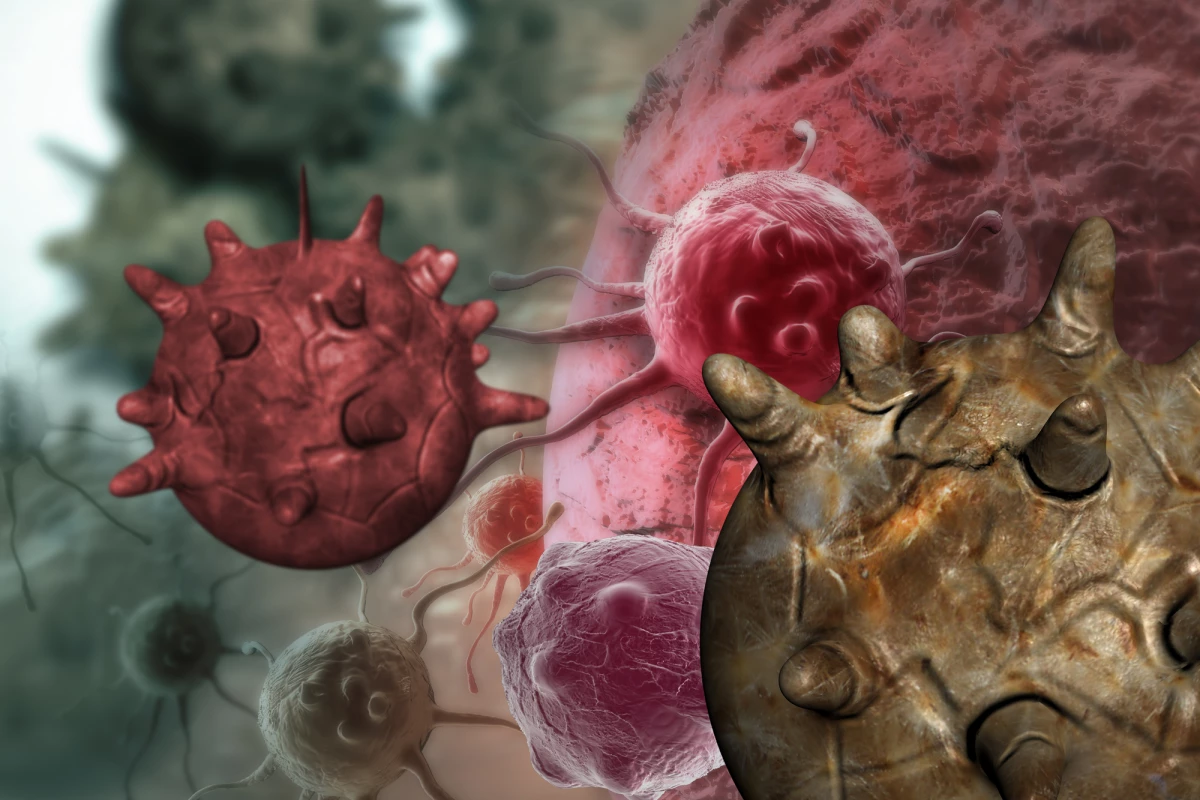Researchers at Karolinska Institute in Sweden have made a breakthrough in the arms race that is cancer immunotherapy. The team has blocked a protein that silences an important tumor-suppressing protein, allowing the latter to get back to work.
The focus of the study is the protein p53, which is often colloquially called the “guardian of the genome.” This protein keeps watch during cell division and, if it detects DNA damage, it pauses the process and either repairs it or kills the faulty cell if it’s too far gone. That prevents the cell from turning cancerous – or at least, that’s the aim. Mutations or deficiencies in the gene that encodes for p53 are associated with a huge range of cancer types.
Some tumors are also known to bypass this cell division checkpoint using a protein called MDM2, which disables p53. And in the new study, the Karolinska scientists found that blocking MDM2 allowed p53 to perform its tumor-suppressing duties again.
The team tested the hypothesis using an MDM2-inhibiting drug known as ALRN-6924. In mouse models of cancer, the drug increased the numbers of interferons – signaling proteins that trigger the immune system to attack a target. As such, more T cells were found to infiltrate the tumors, and p53’s efficacy as a checkpoint guard was significantly enhanced. In follow-up tests, the team also noticed similar activity in melanomas taken from two human patients.
Perhaps the most intriguing part is how p53 works. There are sequences in our genome called endogenous retroviruses, made up of fragments of DNA that we’ve inherited from our ancestors’ infections hundreds of thousands of years ago. Up to eight percent of the human genome is composed of this ancient viral DNA – and p53 silences them to keep our genome stable.
If we can increase the level of interferons, we can therefore increase the chances that the immunotherapy will succeed
However, when it detects cancerous cells p53 turns these sequences into a weapon. The protein activates them within the tumors, triggering a response from the immune system to attack the cancer. Harnessing this process could be useful as a form of immunotherapy, the researchers suggest.
“This shows that there are synergies that should be exploited between substances that block MDM2 and modern immunotherapies,” says Professor Galina Selivanova, lead investigator on the study. “A combination of these can be particularly important for patients who don’t respond to immunotherapy. If we can increase the level of interferons, we can therefore increase the chances that the immunotherapy will succeed.”
The team says that the next steps are to investigate similar p53-activating drugs, already undergoing clinical studies, that may be useful for boosting interferons.
The research was published in the journal Cancer Discovery.
Source: Karolinksa Institutet




